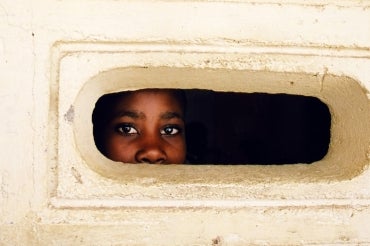U of T student co-author of report on school-based sexual violence in Ghana

Published: March 7, 2017
The extent of school-based sexual violence in Ghana has been documented for the first time in a report co-authored by U of T PhD student Erin Aylward.
 The national study shows that:
The national study shows that:
- 56 per cent of female survey respondents and 37 per cent of male respondents had experienced sexual violence with most of these incidents (92 per cent and 91 per cent, respectively) occurring during the respondent’s school career
- 57 per cent of all cases took place during primary or junior high school
- one in 11 girls, and one in 30 boys experienced sexual violence at the hands of a teacher or principal
“This is a massive issue that needs to be taken seriously,” says Aylward (photo at left), who was awarded a Trudeau Scholarship in 2015 that supports her research in political science. “Incredibly, for people working in the field, the numbers didn’t seem that shocking. There is a pretty clear need for leadership and for better accountability mechanisms.”
Aylward’s hope is that the Ghana government will take notice and the study will help lead to change.
She first learned of the issue when she worked as a gender advisor for Engineers Without Borders in Ghana after her master's degree. At the time, she discovered “that girls might even be expected to have sexual relations with relatives or family friends in exchange for school fees.”
“Anecdotally, it seemed the abuse was pervasive, but it was still a topic that wasn’t on most people’s radar,” Aylward said.
She went on to learn more about the issue of sexual violence in the schools during a U of T course on the sociology of sexuality in the Faculty of Arts & Science with Assistant Professor Hae Yeon Choo.
Aylward soon teamed up with Voto Mobile, a Ghana-based social enterprise, and the Gender Studies and Human Rights Documentation Centre, a leading Ghana women’s rights non-governmental organization. They put together a proposal for Cellphones Against Sexual Violence, a two-year pilot project that included a national survey delivered through mobile technology, a sexual violence hotline and a school-based program. Amplify Change, a fund devoted to sexual and reproductive health, stepped forward to provide the finances.
The survey results have garnered interest from NGOs in Ghana, as well as from the Australian embassy and the Canadian High Commission in Ghana.



